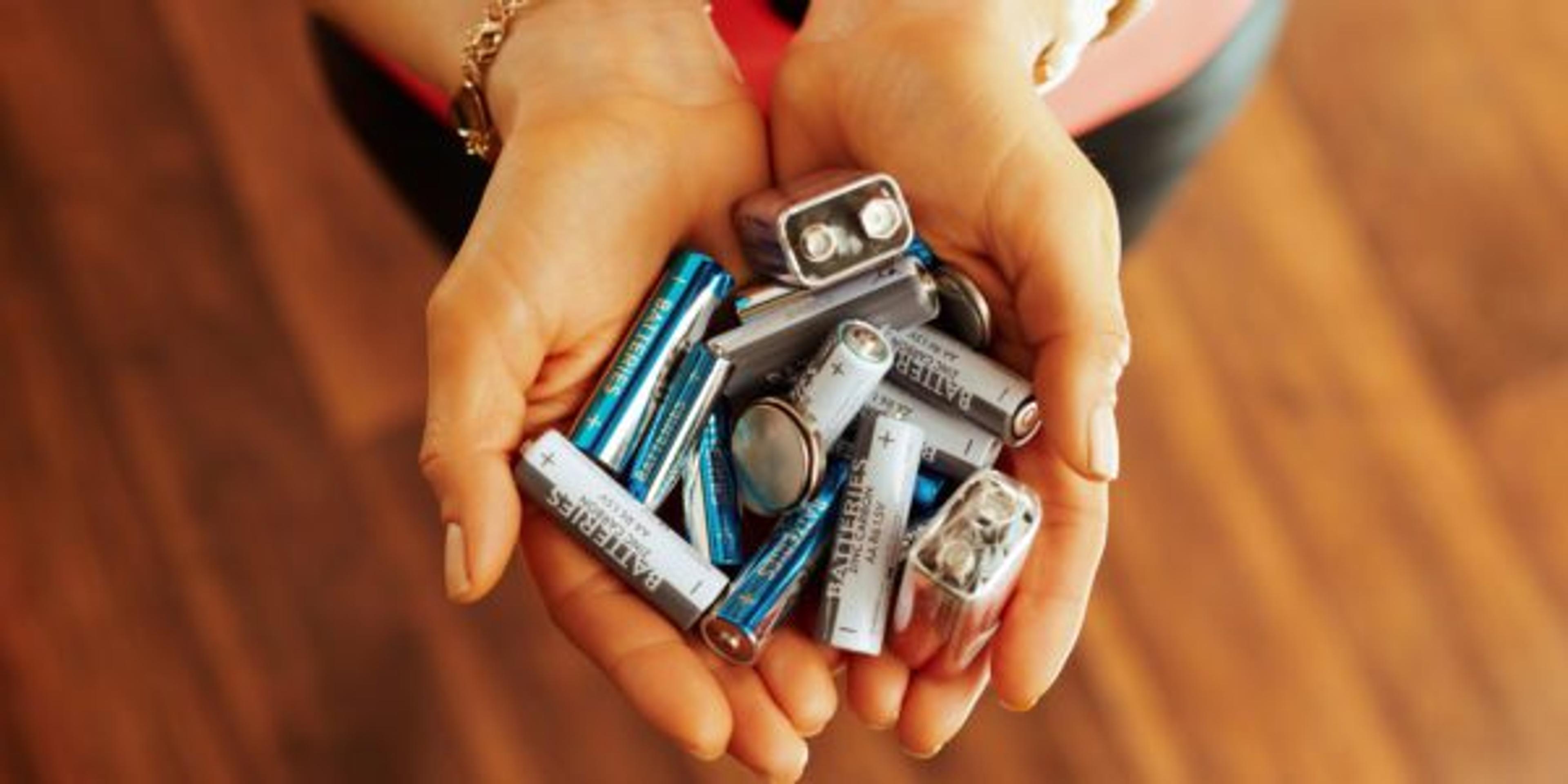How to Safely Dispose of Batteries

Abby Grant
| 3 min read

Many gifts shared this holiday season like children’s toys and household gadgets require batteries in order to function properly – which can leave you with an influx of batteries in your household.
While you may be tempted to simply toss the dead batteries into the trash, it’s a bad environmental practice. Instead, create a plan to safely dispose of all your old batteries by recycling them.
Batteries contain toxic chemicals that can be harmful to your health. They are made using different chemicals such as lead, nickel, silver and even mercury. When not properly disposed of, batteries can pose a threat to not only humans but also the environment. In addition to the threat that the chemicals bring, batteries could also start fires when not disposed of properly. Here are some tips on how to safely dispose of both single use and rechargeable batteries:
Single-use batteries
There are many different types of batteries that fall under the category of single-use batteries and these specialized types also have specific ways that they should be disposed of.
Alkaline and zinc batteries such as 9-Volt batteries, AAA, AA, C and D batteries can be safely disposed of in your household trash. However, the U.S. Environmental Protection Agency still recommends collecting alkaline and zinc batteries and taking them to your local recycling company.
Other common single-use batteries include button or coin batteries and lithium batteries. Button batteries are often found in hearing aids, keyless entry locks and calculators. Lithium batteries are found in remote controls, watches and smoke detectors. These batteries are harmful because they contain toxic chemicals and heavy metals. Button batteries are especially dangerous because their small size makes them a choking hazard for small children.
To safely dispose of button batteries and any lithium batteries, store each individual battery separately to prevent potential fires and take the batteries to your local hazardous waste collection facility.
Rechargeable batteries
Like single-use batteries, rechargeable batteries still need to be properly disposed of. To know what type of battery you are dealing with, look for the label on the battery. Rechargeable batteries are commonly found in children’s toys, mobility scooters, cordless power tools and small wireless electronic devices. Rechargeable batteries are also categorized as nickel cadmium, nickel zinc or nickel metal hydride batteries and lithium-ion batteries.
Like button and lithium-ion batteries, rechargeable batteries need to be stored in separate containers to prevent potential fires. For additional security, use electrical tape to cover the battery’s terminal.
After properly storing batteries, dispose of batteries at your local recycling facility or your local hazardous waste collection facility.
Read on:
Photo credit: Getty Images





